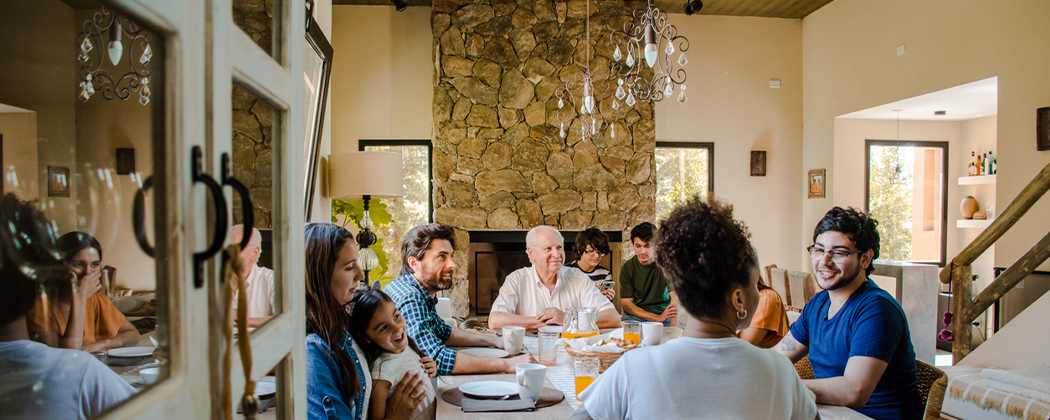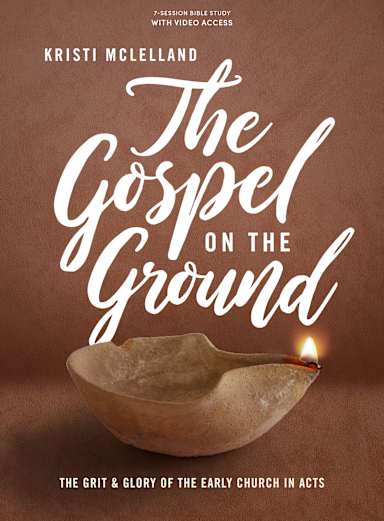"And they devoted themselves to the apostles' teaching and the fellowship, to the breaking of bread and the prayers. And awe came upon every soul, and many wonders and signs were being done through the apostles. And all who believed were together and had all things in common. And they were selling their possessions and belongings and distributing the proceeds to all, as any had need. And day by day, attending the temple together and breaking bread in their homes, they received their food with glad and generous hearts, praising God and having favor with all the people. And the Lord added to their number day by day those who were being saved."
Acts 2:42-47
The generosity of the early church was striking — almost unnerving to us. We read these generosity stories throughout the book of Acts, and we wonder why they were so generous toward one another. They actually lived out the more modern-day motto, "Leave no man behind."
When we read the first few chapters of the book of Acts, we're reading about deep compassion in the context of Jerusalem. Early followers of Jesus were exhibiting kindness toward their own — local and neighborly generosity.
The early church saw themselves as a family, not as collective individuals with different last names who hung out from time to time. Jesus was the firstborn and the only begotten Son of God. They were adopted into this eternal family with a high and holy Father who promised to never leave them nor forsake them. They took seriously the truth that each of them had been saved and adopted into God's family. This made them siblings to one another — brothers and sisters in Christ. They would never be alone again, not in this life or the one to come. They loved and cared for one another as siblings in a family, not simply friends who shared a faith in God.
The first-century Jewish world was a communal culture and an honor/shame culture. Honor and shame were not just individual, they were communal values. This cultural marker was never about how just one person was doing. It was always about how everyone was doing. They lived every day in the "we" and not the "me."
The first two siblings in the story of the Bible are Cain and Abel. They give us the first glimpse of the sibling relationship. Many sibling relationships would follow — some of these names may sound familiar to you:
Isaac and Ishmael
Jacob and Esau
Joseph and his brothers — Reuben, Simeon, Levi, Judah, Dan, Naphtali, Gad, Asher, Issachar, Zebulun, and Benjamin. (Plus one sister that we know of, Dinah.)
Moses, Miriam, and Aaron
A profound question was asked and answered between the first two siblings, Cain and Abel. Cain killed his brother Abel while the two of them were in a field together (Gen. 4:8). After this, the Lord had an important and timeless conversation with Cain.
"Then the LORD said to Cain, 'Where is your brother Abel?' 'I don't know,' he replied. 'Am I my brother's keeper?'" (Genesis 4:9).
The rest of the Bible answers this question with a resounding yes! We are indeed our brother's keeper and are meant to live meaningfully and generously for the benefit and honor of the family, the group, and the community.
"We are indeed our brother's keeper and are meant to live meaningfully and generously for the benefit and honor of the family, the group, and the community."
Kristi McLelland
The ancient Israelites left the corners of their fields unharvested so the poor, widows, and orphans could have food to eat. The practice of jubilee ensured that debts would be paid so that siblings would not end up in lifelong debt and servitude to one another. The practice of the kinsman-redeemer that we see in the story of Boaz, Ruth, and Naomi was to ensure that the wives and children of men lost in war would not be left isolated, destitute, and without family, protection, or provision.
There's more to the Cain and Abel narrative to unpack here. Let's keep reading.
"The LORD said, 'What have you done? Listen! Your brother's blood cries out to me from the ground'" (Genesis 4:10).
The word blood here is plural.1 It is not just Abel's blood that was crying out to the Lord. It was the entire bloodline that would never be born because Cain snuffed out Abel's life. For the Jewish people, killing was a communal and generational act. It was never the loss of one life, but the loss of the generations that would never be born.
"If any man has caused a single life to perish from Israel, he is deemed by Scripture as if he had caused a whole world to perish; and anyone who saves a single soul from Israel, he is deemed by Scripture as if he had saved a whole world."
We are our brother's keepers. We are siblings in the Lord. Caring for the family of God is one of the ways we participate with the living God in the restoration and renewal of the world, starting with our own families and faith communities.
What if our generosity not only helps the person but her entire lineage?
What if helping one person is like helping a world?
What if our lack of generosity not only harms the person but her entire lineage?
What if a lack of generosity not only harms the person but a world?
What if generosity is like a rock skipping along the water — the harder you throw it, the further it goes?
The earliest followers of Jesus lived with such extravagant generosity toward one another because they were living like they were their brother's keepers. It was the honorable thing to do. It was the right thing to do.
I think Acts 2:44-45 is one of the most convicting and challenging yet beautiful and buoyant passages in the entire New Testament. As you know, it reads:
"All the believers were together and had everything in common. They sold property and possessions to give to anyone who had need."
Acts 2:44-45
Extravagant generosity is still the right thing to do today. As followers of Jesus, we should be the most generous people in the entire world. We are not orphans left to ourselves. We are not fatherless. We are not without the family of God. We can afford to give our lives away knowing the living God will give them back to us in manifold ways. We are part of the kingdom of abundance in an empire of scarcity.
Let Jesus be our anthem and generosity be our theme.
Excerpted from The Gospel on the Ground. © 2022 Kristi McLelland. Published by Lifeway Press®.
1. Strong's H1818, Blue Letter Bible, https://www.blueletterbible.org/lexicon/h1818/kjv/wlc/0-1/.
In The Gospel on the Ground, Kristi McLelland unpacks the life of the early church in the book of Acts and shows us that the kingdom of God is always on the move, always looking outward to bring meaning and joy to a world searching for true fulfillment and hope.

